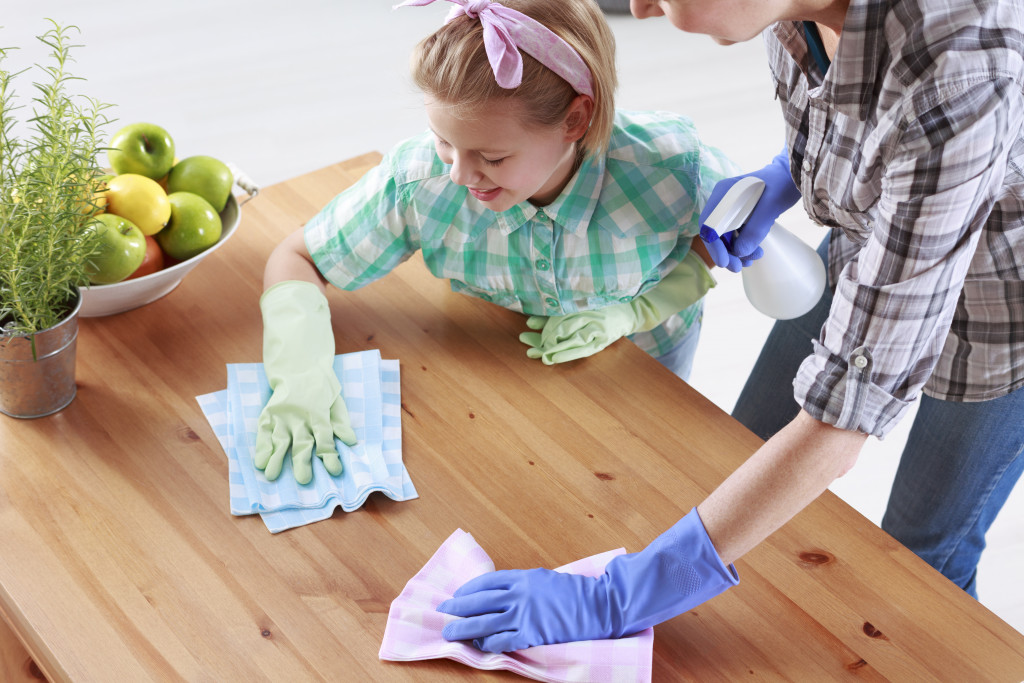- Prioritizing child development helps foster an environment for kids to reach their full potential.
- Playtime is essential for cognitive, social, emotional, and physical development.
- Video games can positively affect a child’s development when used in moderation.
- Household chores help teach initiative, organization, confidence, and responsibility.
Parents play a vital role in the development of their children, from infancy to adulthood. By prioritizing child development, parents can foster an environment where their children can thrive and reach their full potential.
Research has repeatedly shown that when parents prioritize the development of their children, positive outcomes follow. A study by the Harvard Center on the Developing Child found that when parents engage with their children in meaningful ways – such as through conversations, reading stories together, playing imaginative games, and spending quality time – it can lead to improved academic success and better social skills at school.
You will have no doubt heard of the more commonly known methods to aid your child’s development, such as providing a healthy diet and plenty of rest. While these are undoubtedly important, some underrated development tactics can help further spur your child’s growth. Here are other ways to promote your child’s development:
Playtime
Playtime is an essential part of a child’s learning and development. It helps foster creativity, problem-solving skills, emotional regulation, and physical coordination, among other critical life skills. Here are the four best examples of how playtime can help with child development:
Cognitive Development
Playtime provides an ideal environment for cognitive development. By providing opportunities to explore their environment, children can learn new concepts and build on those they already know. Games like puzzles and blocks can help teach basic problem-solving skills, which can be applied to more complex activities in the future. Additionally, playing board games can help children develop better critical thinking abilities while learning basic math skills such as counting, addition, and subtraction.
Social Development
Interacting with peers during play provides endless benefits for social development. Through play, kids learn how to cooperate with others and share resources positively. This skill is essential when entering a school where teamwork is often necessary for classroom and playground success. Further, playing with others helps kids understand emotion regulation by teaching them how to manage anger or disappointment healthily rather than through unproductive behaviors like yelling or lashing out at peers.
Emotional Development
Playtime is an invaluable resource for emotional development as it provides a safe place to express themselves and take risks without fear of judgment or failure. Kids learn what types of behavior are appropriate in specific situations by experiencing different scenarios through play-acting or pretending to play with friends or family members. This helps them feel comfortable expressing their emotions healthily rather than bottling up their feelings or having outbursts when negative emotions arise later on.
Physical Development
Playing outdoor games or engaging in active sports helps kids stay physically fit while developing motor system coordination simultaneously! Running outside encourages gross motor skill development and hand-eye coordination – all essential skills for academic success later on! Furthermore, participating in physical activities also boosts self-confidence levels which may have otherwise been lacking due to lack of exposure to physical activity during childhood years!
Video Games

An underrated development tactic for kids is playing video games. While many parents may fear the potential harm of letting children play video games, research has found that when used correctly and in moderation, they can positively affect a child’s development. Games like Minecraft or Animal Crossing are great options, allowing kids to explore virtual worlds while developing hand-eye coordination and problem-solving skills. Additionally, online gaming can help your child foster positive relationships with other players worldwide, benefitting their social skills and confidence levels when interacting with peers later.
To provide your child with an immersive gaming experience, you can give a PC setup in their room. Investing in a customizable gaming mouse will give them precise control over their gaming and make navigating virtual worlds easier. Getting them a gaming headset will also help improve their audio and communication experience, allowing for better, more effective coordination between teammates.
However, it would help if you supervised your child’s gaming to prevent exposure to inappropriate content. It’s also important to set limits, as too much video game play can lead to addiction and unhealthy habits.
Household Chores

Household chores are another underrated development tactic for kids. Research shows that children expected to do household chores from a young age develop better self-regulation and time-management skills than those without that responsibility. Additionally, they learn the importance of taking the initiative and becoming more organized, which are invaluable life skills!
By involving your child in chores such as setting the table before meals or dusting furniture around the house, you teach them to take pride in their work and contribute positively to their environment. Furthermore, it helps boost their confidence by showing them they can accomplish tasks independently with minimal supervision.
When introducing household chores to your child, give them age-appropriate tasks and guide them in completing them. Additionally, try to make chores fun by using music or turning them into a game. This will motivate them to complete tasks better and help develop their discipline and responsibility toward contributing positively to the home environment!
Final Thoughts
Parental involvement is critical to the successful development of children. By prioritizing child development, parents can foster an environment where their children can thrive and reach their full potential. By implementing these tactics meaningfully, you can ensure your child’s future success in school.
